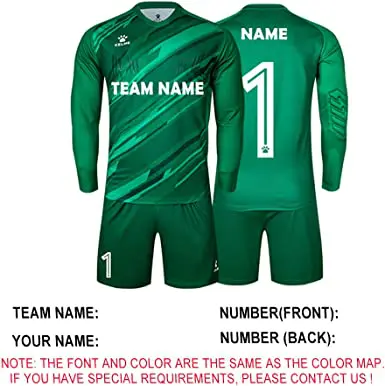Choosing the right OEM sportswear manufacturer can significantly impact your brand’s success. With the sportswear market booming, selecting a manufacturer that aligns with your vision, quality standards, and business goals is crucial. Here are the key factors to consider when making your decision.

1. Quality of Materials
The quality of materials used in sportswear directly affects performance, durability, and comfort. Look for manufacturers who utilize high-performance fabrics that are moisture-wicking, breathable, and stretchable. Request samples to evaluate the material quality and ensure it meets your standards.
2. Manufacturing Capabilities
Different sportswear products require different manufacturing techniques. Confirm that the OEM has the necessary capabilities to produce the specific types of apparel you need, whether it’s activewear, compression garments, or eco-friendly options. Evaluate their technology and machinery to ensure they can meet your design specifications.
3. Experience and Reputation
Research the manufacturer’s experience in the sportswear industry. A company with a solid reputation and a history of successful partnerships is more likely to deliver quality products. Look for client testimonials, case studies, and reviews to gain insights into their reliability and service level.
4. Customization Options
Your brand identity is essential, and the ability to customize products is a significant factor. Ensure the OEM offers various customization options, including design, colors, sizes, and branding. A manufacturer that collaborates closely with you to bring your vision to life can help differentiate your products in a competitive market.
5. Production Capacity and Lead Times
Consider the manufacturer’s production capacity and lead times. If you anticipate high demand, choose a manufacturer capable of scaling production without compromising quality. Discuss timelines for production and delivery to ensure they align with your launch plans.
6. Compliance and Certifications
Ensure the manufacturer adheres to industry standards and regulations. Certifications for quality management (like ISO) and ethical manufacturing practices (like Fair Trade or WRAP) can indicate a commitment to quality and social responsibility. This is increasingly important for consumers who prioritize ethical brands.
7. Communication and Support
Effective communication is vital for a successful partnership. Choose an OEM that offers transparent and responsive communication throughout the process. Regular updates and support can help address any issues promptly and keep your project on track.
8. Cost and Payment Terms
While cost should not be the only deciding factor, it is essential to consider your budget. Request detailed quotes that outline all costs involved, including production, shipping, and any additional fees. Evaluate payment terms to ensure they align with your financial strategy.
9. Location and Logistics
The location of the manufacturer can affect shipping costs and lead times. Consider whether you prefer a local manufacturer for faster turnaround times or an overseas option for competitive pricing. Assess logistics and potential tariffs that may impact your overall costs.
10. Innovation and Sustainability
In today’s market, innovation and sustainability are increasingly important. Look for manufacturers that invest in new technologies and sustainable practices, such as using recycled materials or eco-friendly production methods. This can enhance your brand’s image and appeal to environmentally conscious consumers.


What are some key questions to ask potential Sportswear Manufacturer during a site visit?
When visiting potential OEMs for sportswear manufacturing, asking the right questions is crucial to ensure they meet your needs and standards. Here are some key questions to consider:
1. What is your production capacity?
- Understand their ability to meet your demand, especially during peak seasons.
2. Can you provide samples of your previous work?
- Request samples to evaluate the quality of their products and craftsmanship.
3. What materials do you use, and where do you source them?
- Inquire about the types of fabrics and materials they offer and their sourcing practices.
4. What are your lead times for production?
- Clarify the timeline from order placement to delivery, including any potential delays.
5. What customization options do you offer?
- Ask about their capabilities for custom designs, colors, and branding.
6. Do you have any industry certifications?
- Verify their compliance with quality and ethical manufacturing standards (e.g., ISO, WRAP).
7. How do you handle quality control?
- Discuss their quality assurance processes to ensure consistent product standards.
8. What are your payment terms?
- Understand their pricing structure and payment policies to align with your budget.
9. How do you ensure ethical labor practices?
- Inquire about their labor practices and how they ensure fair treatment of workers.
10. What are your capabilities for innovation and sustainability?
- Ask about any initiatives for sustainable practices or new technology they employ.
11. How do you communicate with clients during production?
- Explore their communication methods and how often you will receive updates.
12. Can you accommodate changes during the production process?
- Understand their flexibility in handling design or order changes after production starts.
13. What is your process for handling defects or returns?
- Clarify their policies for quality issues and how they manage returns or replacements.
14. Can you provide references from other clients?
- Request references to gauge their reliability and client satisfaction.
15. What logistics support do you offer?
- Discuss shipping options and whether they assist with logistics planning.
Conclusion
Asking these questions can help you assess whether a potential OEM aligns with your business needs and values. A thorough site visit and open dialogue will aid in making an informed decision.
Conclusion
Choosing the right OEM sportswear manufacturer involves careful consideration of multiple factors, including quality, experience, and customization options. By taking the time to evaluate potential partners thoroughly, you can ensure a successful collaboration that elevates your brand in the competitive sportswear landscape. Remember, the right manufacturer can become a valuable ally in your journey to success.
